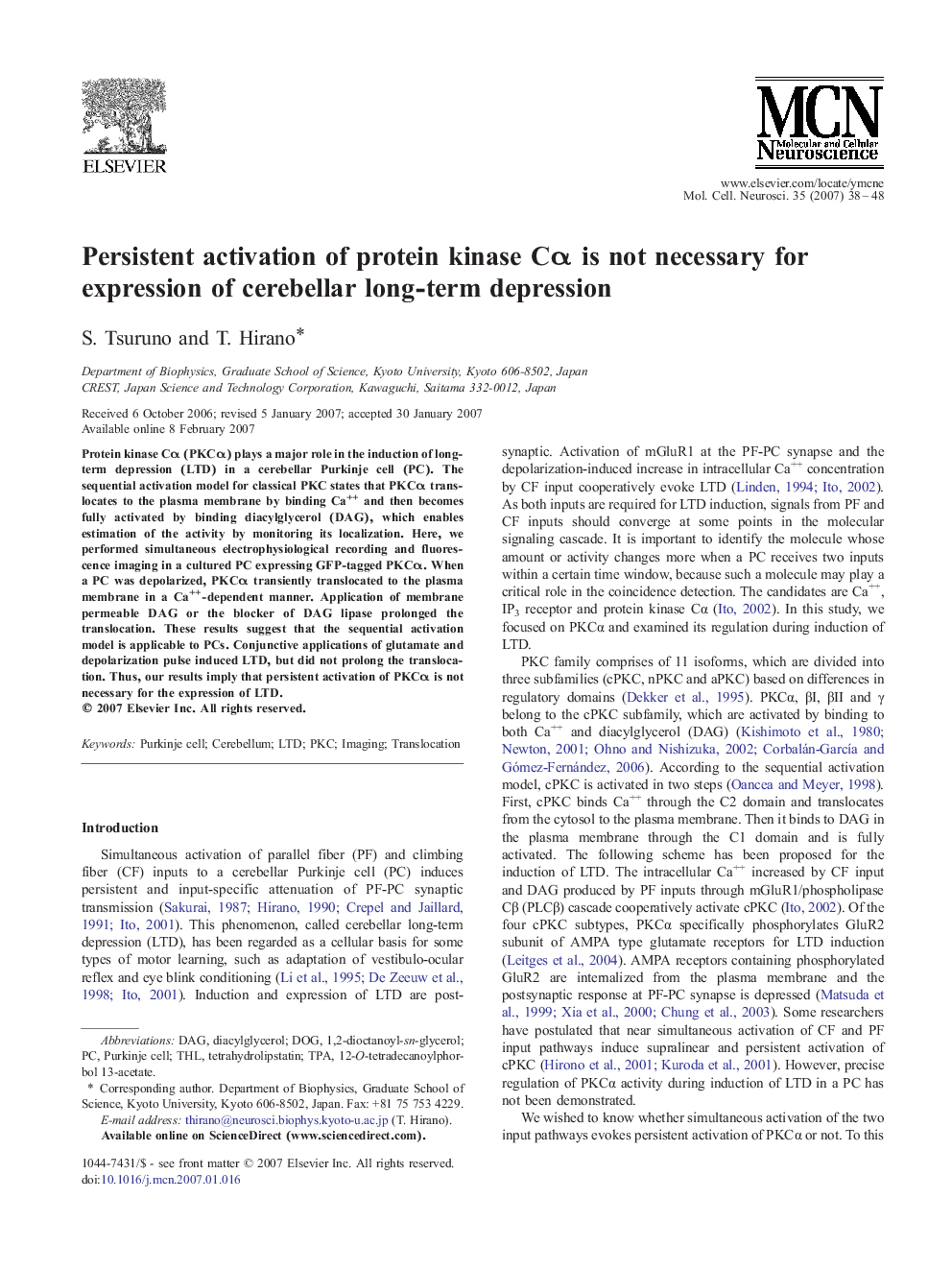| Article ID | Journal | Published Year | Pages | File Type |
|---|---|---|---|---|
| 2199463 | Molecular and Cellular Neuroscience | 2007 | 11 Pages |
Abstract
Protein kinase Cα (PKCα) plays a major role in the induction of long-term depression (LTD) in a cerebellar Purkinje cell (PC). The sequential activation model for classical PKC states that PKCα translocates to the plasma membrane by binding Ca++ and then becomes fully activated by binding diacylglycerol (DAG), which enables estimation of the activity by monitoring its localization. Here, we performed simultaneous electrophysiological recording and fluorescence imaging in a cultured PC expressing GFP-tagged PKCα. When a PC was depolarized, PKCα transiently translocated to the plasma membrane in a Ca++-dependent manner. Application of membrane permeable DAG or the blocker of DAG lipase prolonged the translocation. These results suggest that the sequential activation model is applicable to PCs. Conjunctive applications of glutamate and depolarization pulse induced LTD, but did not prolong the translocation. Thus, our results imply that persistent activation of PKCα is not necessary for the expression of LTD.
Keywords
Related Topics
Life Sciences
Biochemistry, Genetics and Molecular Biology
Cell Biology
Authors
S. Tsuruno, T. Hirano,
